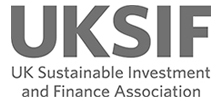 When I talk about ethical and sustainable investing what does that mean? Sometimes that depends upon the client who may have special preferences.
When I talk about ethical and sustainable investing what does that mean? Sometimes that depends upon the client who may have special preferences.
For me it can mean a wide variety of options and opportunities and, to the surprise of many, it also means serious investment.
![]() This article, kindly provided by Pictet Asset Management gives the story of water investment. You can see this as purely an investment opportunity, as an opportunity to use your investment monies for a better world; or you can also see the human and social benefits.
This article, kindly provided by Pictet Asset Management gives the story of water investment. You can see this as purely an investment opportunity, as an opportunity to use your investment monies for a better world; or you can also see the human and social benefits.
This is also an invitation to think more creatively about how you invest and to do that all you need to do is talk to Jan.
This is what Pictet is involved in . . . . .
The private water supply sector consists of companies serving the population through the supply and storage of drinking water.
By 2050, up to 4 billion people across the world could be living under ‘severe’ water stress, up from 1.2 billion today.
Economic growth is exacerbating the water shortage as it boosts personal wealth, leading to increased consumption of products that require more water to produce, such as animal protein.
For example, producing a kilogram of beef requires 15,000 litres of water, six times more than is needed to produce the same amount of rice.
—
Governments are increasingly unable to maintain supply due to tight budgets and ageing infrastructure.
This means that private companies will play an ever-more important role throughout the human water cycle, especially in North America and Central & Eastern Europe, where they are expected to increase their market share by more than 10 per cent between 2013 and 20253.
With other regions, such as South America and Asia, requiring up to USD 14 trillion of investment by 2030 to secure their water supply, there will be countless opportunities for companies involved in innovative water supply solutions, such as water recycling and desalination, to profit.
Water treatment
The water technology sector consists of companies developing the tools and systems to improve the efficiency with which we use water.
For instance, as much as 75 per cent of the world’s available freshwater supply is unsafe for consumption due to contamination or pollution.
Governments can enact measures to safeguard water sources from pollutants, but it is private companies involved in the development of innovative filtration systems, such as permeable membranes or UV filtration, that will provide solutions to these issues.
Leakages
In developing countries, more than 45 million cubic metres of water are lost through leaks every day. The cost of improving existing public infrastructure globally is predicted to exceed USD20 trillion between 2005 and 20304.
Companies producing innovative water technology solutions, such as next-generation sensors and monitoring equipment that can increase the efficiency of water usage and help avoid wastage through leaks, represent compelling investment opportunities.
Irrigation
With 70 per cent of the world’s available freshwater used to support agricultural production, governments are now tackling the wasteful use of water in this sector, such as through the fines California has imposed on those who irrigate their crops in daylight hours during droughts.
This focus on waste is creating opportunities for companies making advances in agricultural water technology, such as drip irrigation, which only intermittently wets the soil that is closest to the crop, and thus provides higher moisture levels while using less water.
Waste management
There is growing awareness, especially within developing countries, about the need to deal with the water supply problems arising from improper solid waste disposal, which in China has led to nearly 60 per cent of the country’s underground water and a third of its surface water being classed as ‘unfit for human contact’.
The Chinese government is determined to improve this situation, with its 2015 ‘Water Ten Plan’ putting in place tough targets on polluting industries to provide ecological and environmental protection. With industrial wastewater treatment in China reaching around 90 per cent penetration, the focus will shift to tackling the rise of domestic waste output.
Companies operating in the environmental services sector and providing solutions to waste water collection and its treatment are predicted to benefit.







